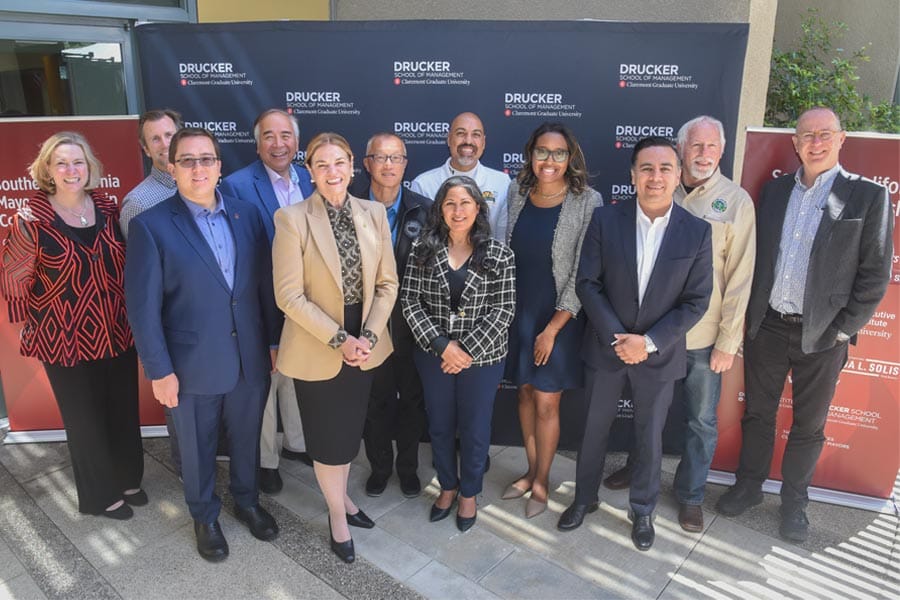Inspiring Leadership and Community Impact: Reflections from the Southern California Mayors Leadership Conference

In April, The Drucker School of Management hosted the 2nd Annual Southern California Mayors Leadership Conference. Themed “Knowing Yourself. Impacting Your Community,” the event drew regional mayors to explore introspective leadership, reinforcing Peter Drucker’s philosophy that effective management enhances societal well-being.
“Mayors were provided with skills and discussions on key issues, including crisis response, artificial intelligence’s impact, and creating fairer societies,” said David Sprott, dean of the Drucker School, emphasizing the applicability of Drucker’s principles across government and for-profit sectors.
The conference combined personal development with practical governance skills, aiming to enhance the region’s mayors as more effective change agents in their communities. Nan Whaley, the former mayor of Dayton, Ohio, led a session on crisis management, sharing insights on resilience and strategic responsiveness. Whaley later commended the organizers for their thoughtful programming, noting its solid foundation for future leadership discussions.
Katharina Pick, clinical associate professor at The Drucker School, discussed the critical role of emotional intelligence in governance, highlighting how understanding emotions leads to more inclusive policymaking. Mark Abdollahian, a full clinical professor, emphasized the importance of AI in enhancing community engagement and operational efficiency.
A highlight of the day was the panel discussion on “challenges and successes with inequalities,” featuring insights from notable leaders, including Riverside Mayor Patricia Lock Dawson, Irvine Mayor Farrah Khan, and Steve PonTell, CEO of Silver Creek Modular. Panelists shared strategies for addressing inequalities, showcasing proactive steps to foster inclusivity and fairness.
Stephen Gilliland, professor at the Drucker School, reflected on the event’s dynamics, sharing, “The most amazing part of the day was the quality of the interactions and discussions. Mayors and faculty are learning from each other through meaningful conversations!” This underscored the collaborative spirit where strategies and successes were shared, enriching the learning experience.
Attendees left equipped with new insights and tools, ready to implement effective governance and innovation in their communities. The conference reinforced the critical link between self-knowledge and impactful leadership and set a promising trajectory for the future of city management in the region, affirming a commitment to practices that enhance community life and address the challenges of modern local government.